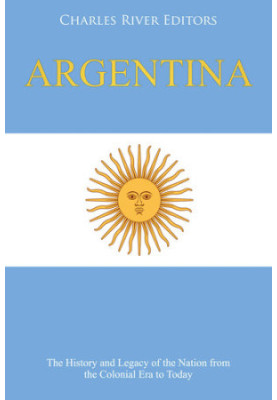Argentina: The History and Legacy of the Nation from the Colonial Era to Today
 Instant download
Instant download
after payment (24/7)
 Wide range of formats
Wide range of formats
(for all gadgets)
 Full book
Full book
(including for Apple and Android)
By the time Christopher Columbus started setting east from the New World, he had explored San Salvador in the Bahamas (which he thought was Japan), Cuba (which he thought was China), and Hispaniola, the source of gold. As the common story goes, Columbus, en route back to Spain from his first journey, called in at Lisbon as a courtesy to brief the Portuguese King John II of his discovery of the New World. King John subsequently protested that according to the 1479 Treaty of Alcáçovas, which divided the Atlantic Ocean between Spanish and Portuguese spheres of influence, the newly discovered lands rightly belonged to Portugal. To make clear the point, a Portuguese fleet was authorized and dispatched west from the Tagus to lay claim to the “Indies,” which prompted a flurry of diplomatic activity in the court of Ferdinand and Isabella. At the time, Spain lacked the naval power to prevent Portugal from acting on this threat, and the result was the hugely influential 1494 Treaty of Tordesillas.Perhaps inevitably, a regional rivalry had developed as the Portuguese began to establish a colony in Brazil and push its boundaries southwards. After the conquest of the Incas in the 1530s, the Portuguese threat prompted the authorization of a second expedition, commanded this time by Pedro de Mendoza with a force of some 1,500 men. The party arrived at the mouth of the Río de la Plata in 1536, and there Mendoza founded the settlement of Nuestra Señora Santa María del Buen Ayre. This was the basis of the future city of Buenos Aires, but its establishment was not without resistance from surrounding tribes, marking the kind of conflicts that would shape the history and independence movements of Argentina over the next 300 years.Until the 1930s, nationalism had always tended to be a phenomenon of the right-wing or the immigrant anarchists and Bolsheviks. Now, however, the emphasis shifted to the middle ground, and ironically, one of the issues driving Argentine nationalism was…
LF/916241/R
Data sheet
- Name of the Author
- Charles River Editors
- Language
- English
- Release date
- 2020



























